#Richard Pigott
Explore tagged Tumblr posts
Text
#OTD in 1882 – Phoenix Park murders | The British chief secretary of Ireland, Lord Frederick Cavendish, and his under secretary, T.H. Burke are murdered.
Arriving in Dublin on 6 May 1882, the Chief Secretary for Ireland, Frederick Cavendish (who was married to the niece of British Prime Minister William Ewart Gladstone), attended to some formal business in Dublin Castle, the seat of the British government, before walking home to the Viceregal Lodge in the Phoenix Park. Joining Cavendish in his walk, was his under-secretary, Thomas Henry Burke, the…
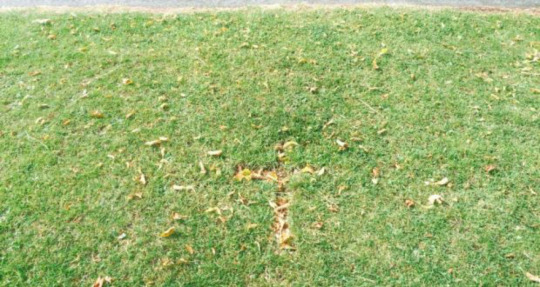
View On WordPress
#British chief secretary of Ireland#British Prime Minister William Ewart Gladstone#Charles Stewart Parnell#Dublin#Home Rule#James Carey#Joe Brady#Journalist#Kilmainham Gaol#Lord Frederick Cavendish#Phoenix Park Murders#Photo credit: Frank McNally#Richard Pigott#T.H. Burke#The Invincibles#Under Secretary#Viceregal Lodge#William Marwood
4 notes
·
View notes
Text

#tv shows#tv series#polls#north & south#daniela denby ashe#richard armitage#tim pigott smith#2000s series#british series#have you seen this series poll
87 notes
·
View notes
Text

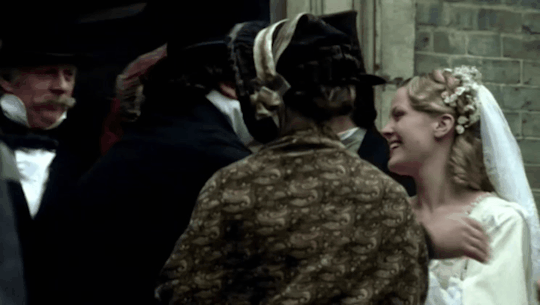
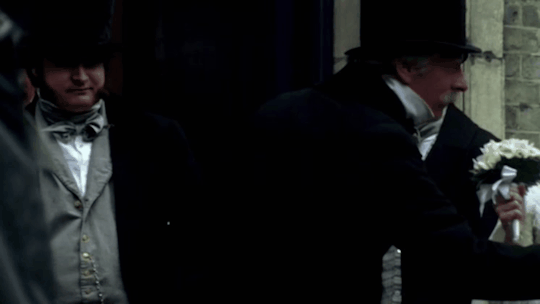
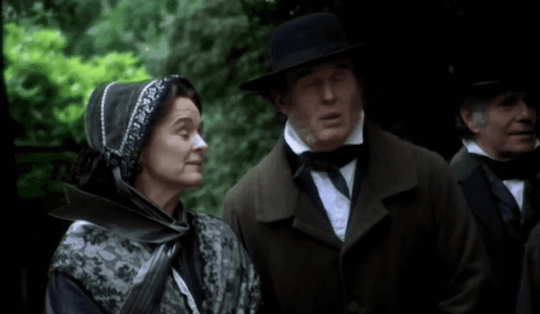
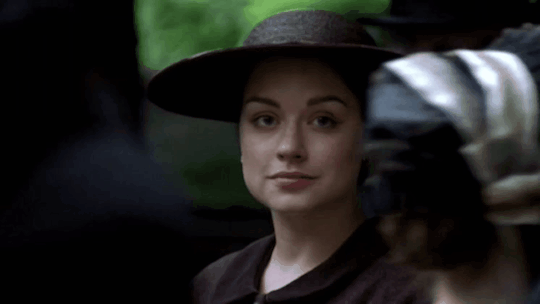

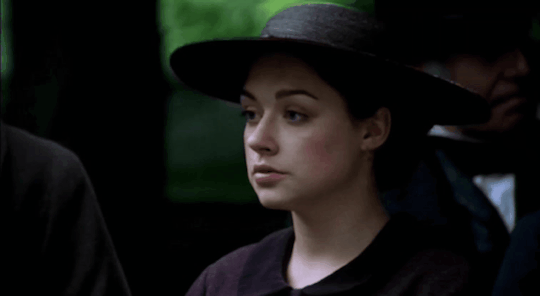
North and South (2004)
Episode 4.
dir. brian percival
#north and south 2004#elizabeth gaskell#margaret hale#john thornton#mrs thornton#mr hale#daniela denby ashe#richard armitage#sinéad cusack#tim pigott-smith#costume drama#period drama#miniseries#my gifs#mine
38 notes
·
View notes
Text
Look What You Made Me Brew (Unexpected Musicals) — PattyCake Productions music video
youtube
Every villain is the protagonist of their own story, and part of that viewpoint requires finding ways to justify their actions. The so-called heroes must deserve to be on the receiving end of their machinations.
So when the PattyCake guys decided to convene a meeting of some of their favorite baddies for their second Halloween video, they turned to the music of Taylor Swift, who some people view as a hero, and who has been villainized by others. Her gaslight-gatekeep-girlboss anthem was the perfect choice for these characters to revel in their wickedness.
Details:
title: Unexpected Musicals — Look What You Made Me Brew
performers: Jennica McCleary (Winifred Sanderson), Stephanie Trilli (Sarah Sanderson), Jaimz Dillman (Mary Sanderson), Michelle Knight (Regina / Evil Queen), Leah Lowman (Maleficent), Tiffany Trilli (Cruella De Vil), T. Robert Pigott (Captain Hook), Emma Dahlin (additional vocals), & Hannah Juliano (additional vocals)
original songs / performers: main title theme from Hocus Pocus; "Look What You Made Me Do" by Taylor Swift; "Shake It Off" by Taylor Swift; "I Knew You Were Trouble" by Taylor Swift; "…Ready for It?" by Taylor Swift; "Style" by Taylor Swift; "Bad Blood" by Taylor Swift, feat. Kendrick Lamar
written by: Hocus Pocus main theme by John Debney; "Look What You Make Me Do" by Taylor Swift, Jack Antonoff, Fred Fairbrass, Richard Fairbrass, & Rob Manzoli; "Shake It Off" by Taylor Swift, Max Martin, & Karl "Shellback" Schuster; "I Knew You Were Trouble" by Taylor Swift, Max Martin, & Karl "Shellback" Schuster; "…Ready for It?" by Taylor Swift, Max Martin, Karl "Shellback" Schuster, & Ali Payami; "Style" by Taylor Swift; "Bad Blood" Taylor Swift, Max Martin, Karl "Shellback" Schuster, & Kendrick Lamar
arranged by: Randy Nichols, Layne Stein, & Tony Wakim
release date: 3 October 2017
My favorite bits:
the witches' fantastic acting in the intro
everyone's dramatic entrances
the emphasis of specific instruments for each character — stacatto brass behind the Evil Queen, tinkling bells for Maleficent, cymbals and kettle drums with Cruella, clockwork precise snare drums and piano for Hook
the Evil Queen's gritty belt on the second ♫ "bad dreams" ♫
everything grinding to a halt for the "Shake It Off" gag
all the samples from Taylor's other songs blended into the polyphony section
Winnie's final cackle
the spellbook rolling its eye at their melodrama during the end credits














Trivia:
Many of the songs in this medley had also been featured in PattyCake's "Cinderswift" video at the beginning of the year. The one new Taylor Swift song is sung by Leah (Maleficent), who played Cinderella in that project.
Because there is no animated version of Hocus Pocus, the other villains are dressed in costumes and playing characterizations based on the live-action adaptations of their stories.
This video was filmed in a cottage interior set at Columbia Street Studios in Orlando.
Jennica, Jaimz, & Stephanie all returned to reprise their Sanderson sisters roles from "Hocus Heathens" the previous Halloween.
Michelle had played the Evil Queen in PattyCake's very first Unexpected Musical, "Snow Spears", and has continued in that role for their Villains Lair series.
Robby and Tiffany have also remained as Captain Hook and Cruella in The Villains Lair.
Leah first portrayed Maleficent in "Michaeleficent" earlier in the year, and has done so occasionally in the years since.
Some fans pointed out that Maleficent singing the line about "kingdom keys" could also be read as a reference to the Kingdom Hearts video game series in which the character is an antagonist.
The blinking spellbook was created by Rick Underwood, who specializes in props and special effects makeup, which he also uses to create scares for Universal Studios' annual Halloween Horror Nights events.
This video was published a few weeks before Layne flew to L.A. to film VoicePlay's messy version of the song with the pocket.watch crew, which premiered in January.
This video racked up a million views on Facebook in less than two weeks.
Jennica provided a peek behind the scenes on Facebook Live as the cast an crew were preparing to film.
7 notes
·
View notes
Text
Extended credits for Museum at Tomorrow episode 5
Below the cut are all of the folks who I used (and asked to be credited) for recordings in Museum at Tomorrow episode 5- specifically, the "This is not for You" recordings.
(The list was too long for podcast episode descriptions)
These recordings were mixed into the soundscape of the show, heavily processed- so you may or may not be able to pick out your voice. Each unique recording is preserved as rhythem, timber, and shape within the episode.
Thank you for your work in creating the canvas of this piece.
Kate Bullen
K R Forsyth
Vega Jacobsen
Charlie
Rovi
Grace Gamble
Wesley Lee Balete
Charlie Sloykowski
JC Hendry
Courtney Brothers
Arabella McDonald
Hanc Finestra
Katie H
Galacticguppy
Beck Smith
GreenHeronHive
Micheal Vee
Mira Singer
Laurent J.L. Hall
Carley Mothersell
woaaah
cmt
November_Clouds
Elliott Neptune
Enrica Jossi
Ace
Jahan Shah
Morgan Galagher
Niall LG
Bates
Caroline Mincks
Daniel Kurtz
AJ Fidalgo
Tani
Shura
Zedek H
Halebop
Malia Northstar
Greg Ruddick
Solstice Hannan
Jessamy Thomison
Cassie A.
Rachel Spokony
miss mr meow
Arti Richardson
Mattie J.
Geddy Cary-Avery,
Ophelia Cary-Avery
Sophie Kaplan
X Speaks
Devin
Craux
Cap
Joe R
Ray Goldberg
Mog
The Marble System
Tina Case
Kate Bullen
Marionette
LD
Maddy Searle
Remi P
Meg Taylor
Beth
Evan Tess Murray
Amanda Jones
Amanda Ehrhardt
Nathan Fisentzou-Haji-Leonti
Johanna Andersson
Tess Huth
@faeriebullshit
Olivia Lion
Ange
Bridget M. Mueting
Wil Williams
Katie Utke
aceofgames
Savy Stay
Graham Rowat
Meredith
spaceacebreakface
Molly Walsh
Belinda Parker
Erin Celovsky
liz
Caden Osojnak
Danniac
Ray Schrader
Atlas Byrd
AJ. S.
JayseHasNoGrace
Fay Blackmore
Sharon Peterson
Katharina Abschlag
Izzy
Ace Tayloe
kat B
Siz Hart
moth
Kathryn Cox
G. Honnigford
Pine Gonzalez
sisyphus
Essay
artie eigengrau
Rook Davis
Izzi Mata
grayson
Tamara Jones
Willow
G.F.
Leigh sharpe
Zelda MacFarland
Arkyn Wolf
Elany
Elaine Wiley
Mary Lewis-Phillipps
Claudia Elvidge
Kei Burke
Katie Vargas
Karleen Preator
Alicia Babich
Jonathan Sciance
Étoile
Hayden Laver
Barrett Vann
S Kramer
Maya Hiers-Lairson
judas
Archer Hickerson
Malinda
Nicole Liang
LF Haye
Louis Carroll
Stefanie K.
Autumn Wang
jayvin
Badger Merriweather
Aiden
Sender Paulson
vexxervee
Rob Weiner
Peril
Lotte Schmidt
fynn
Lor
Josie D.
Jaryn Tyson
Common Blue Icarus
resplendeo
Claire Alpern
skelejor
Matt Weiss
M Zemlock
Kay Eileen
Callisto Holmes
Rhys
Noah Quinn
Sarah Elizabeth
Willow Belden
Amanda McCormack
Esrah Del Carlo
sunny
the Hartmans
Lee Ann Eden
Bob Proctor
Clueless
deda eliensis
Ohallo
Tara Schile
Marzi
Flameheart Dryad
Sarah Lambrix
JB Segal
Ellis C
Ash
Autumn
Jaime Tamar
Haze Peers
Moose
Erin Bevan
Luci Tomich
Bryn
Michael W.
Kim Fukawa
Amy Strieter
Petra Hall
Mal
Charlie Rayshich
Susan Weiner
Everett Blackthorne
Vergess
Tor
ArionWind
M. Alti
N. B. Green
Aiden Nicholson
Jacky Rubou
Nura Lawrence
Gwen Clancy
Ollie M.
Caroline
Duo
Iris
ML Beck
Ray Makowski
Eljay Rich
MV8
Michelle Pigott
Rachel Pfennigwerth
Janika
Jamie Gump
Mason J Miller
Ella Watts
Cole
Mady Oswald
Valerie "ShinyHappyGoth" Kaplan
Anne Baird
Emily Ricotta
el-draco-bizarro
Ansel Burch
Nathan Sowell
LM Heß
Cy
Richard Peers
3 notes
·
View notes
Text
John Metcalfe - Tree - a modern classical suite with both chamber and orchestral arrangements.
Tree is eight immersive compositions that take the listener through twenty-four hours in the life of one of nature’s most majestic creations The Durutti Column viola-playing master - a composer and arranger for the likes of U2, Coldplay, Peter Gabriel and Blur, as well as co-founder with Tony Wilson of the Factory Classical label – had been composing music spontaneously, instinctively, when the idea of Tree arrived. The album came from a desire in John Metcalfe to write at scale – perhaps a natural reaction for a composer writing out of the silences and solitude of our recent pandemic years. ��The pieces I was writing were big and trying to be bigger, so I knew they had to be to do with something – and then I thought about one of the most profound experiences of my life.” He is referring to seeing Tāne Mahuta as an adult, the largest known living kauri tree in the world. Set in an ancient subtropical rainforest on the North Island of Aoreatoa / New Zealand, John had spent his early childhood living in that part of the world after his British father had "escaped there as a ten-pound Pom". Having emigrated to England as a child, he went back to New Zealand with his wife when he was 26. He explains, “…we thought we’d tick something off the tourist list, and I thought we're going to see trees, which is great – but we weren’t prepared for what happened.”. They both cried when they found Tãne Mahuta, and Metcalfe is still amazed at the reaction he had: “… as an atheist, it was the closest I’ve ever got to a spiritual moment… there was something extraordinary about the atmosphere in the forest and the size of this tree, and the sense that it had been there a long time. It was about the protection it gave, and the sense of connection we had with that protection.” Written for live players and recorded in Abbey Road Studios to convey human connection at scale, Tree imagines what it would be like to be sat completely still under a tree that you love, being alive to the ever-shifting interplay of light, colour, weather and sound. Shimmering pulsating layered tracks take the listener on a voyage that takes in the dawn chorus, depicted by conversations between chirruping woodwind and staccato strings, through to the solemnity of dusk and into the playful night. The album at times summons up the folkloric power of ancient forests through an emotional crescendo in emotion and sound, before bringing us back to sunrise, and a reflection on the journey we’ve taken. Tree isn’t just about Tãne Mahuta, explains Metcalfe: “It could be about any tree – they’re all very magical.” This record isn’t a political statement, but it's clear to him that as science progresses, and as climate breakdown progresses, people are trying to find deeper ways to understand and cherish nature. "It’s about the music that people are trying to create to connect with things that are huge and beautiful and inexplicable around them." Tree is John's beautiful, emotional attempt. "My album's about describing our relationship with something as every-day and extraordinary as a tree, and how it can be an incredibly important part of who we are.” All tracks written, produced and performed by John Metcalfe Additional Strings on Tracks 1,3,5,6,8 Violins Everton Nelson (leader), Natalia Bonner, Charlie Brown, Emil Chakalov, Alison Dods, Louisa Fuller, Richard George, Raja Halder, Marianne Haynes, Rick Koster, Oli Langford, Steve Morris, Charles Mutter, Tom Pigott-Smith, Cathy Thompson, Debbie Widdup Violas, Peter Lale, Reiad Chibah, Gillianne Haddow, Kate Musker, Andy Parker, Rachel Robson Celli Richard Harwood, Adrian Bradbury, Ian Burdge, David Daniels, James Douglas, Julia Graham, Sophie Harris, Tony Woollard, Double Basses Stacey Watton, Roger Linley, Richard Pryce, Lucy Shaw Woodwind on Tracks 3,4,5,6,7,8 Oboe Alun Derbyshire Bassoon Sarah Burnet Strings fixed by Jenny Goshawk for Isobel Griffiths Ltd. Cover Design; Marc Bessant
7 notes
·
View notes
Text

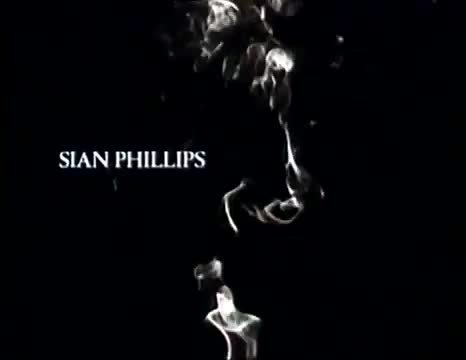
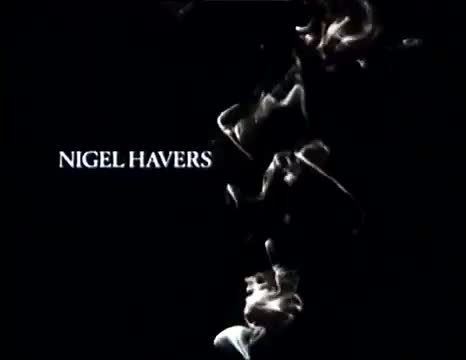

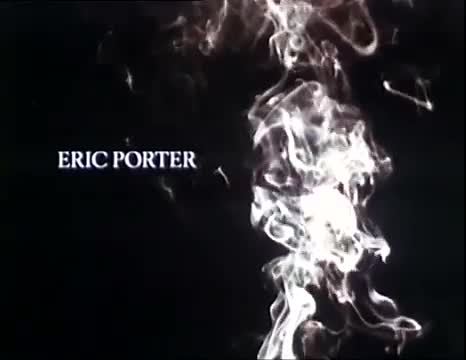


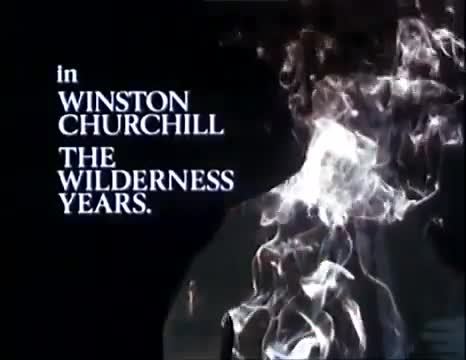

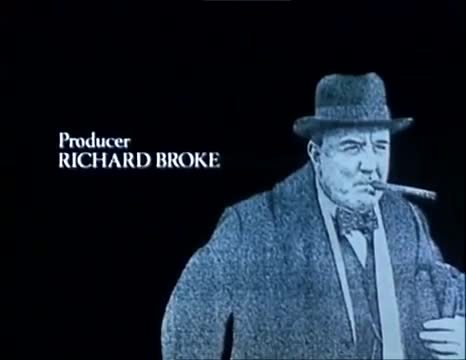

Winston Churchill: The Wilderness Years - ITV - September 6, 1981 - October 25, 1981
Drama (8 Episodes)
Running Time: 60 minutes
Stars:
Robert Hardy as Winston Churchill
Siân Phillips as Clementine Churchill
Nigel Havers as Randolph Churchill
Tim Pigott-Smith as Brendan Bracken
David Swift as Professor Lindemann
Sherrie Hewson as Mrs. Pearman
Moray Watson as Major Desmond Morton
Paul Freeman as Ralph Wigram
Frank Middlemass as Lord Derby
Sam Wanamaker as Bernard Baruch
Peter Barkworth as Stanley Baldwin
Eric Porter as Neville Chamberlain
Edward Woodward as Sir Samuel Hoare
Peter Vaughan as Sir Thomas Inskip
Robert James as Ramsay MacDonald
Tony Mathews as Anthony Eden
Ian Collier as Harold Macmillan
Marcella Markham as Nancy Astor
Walter Gotell as Lord Swinton
Richard Murdoch as Lord Halifax
Clive Swift as Sir Horace Wilson
Phil Brown as Lord Beaverbrook
Diane Fletcher as Ava Wigram
Geoffrey Toone as Sir Louis Kershaw
Norman Jones as Clement Attlee
Geoffrey Chater as Lord Hailsham
Stratford Johns as Lord Rothermere
Norman Bird as Sir Maurice Hankey
Roger Bizley as Ernst Hanfstaengl
James Cossins as Lord Lothian
Guy Deghy as King George V
Stephen Elliott as William Randolph Hearst
Günter Meisner as Adolf Hitler
Frederick Jaeger as Joachim von Ribbentrop
David Langton as Lord Londonderry
Preston Lockwood as Austen Chamberlain
David Markham as the Duke of Marlborough
Richard Marner as Ewald von Kleist-Schmenzin
Llewellyn Rees as Lord Salisbury
Terence Rigby as Thomas Barlow
Margaret Courtenay as Maxine Elliott
Merrie Lynn Ross as Marion Davies
Nigel Stock as Admiral Domvile
#Winston Churchill: The Wilderness Years#TV#ITV#Drama#1981#1980's#Robert Hardy#Sian Phillips#Nigel Havers#Peter Barkworth#Eric Porter#Sam Wannamaker#Edward Woodward
3 notes
·
View notes
Photo

Title: The Little Vampire 3D
Rating: NR
Director: Richard Claus, Karsten Kiilerich
Cast: Rasmus Hardiker, Amy Saville, Jim Carter, Joseph Kloska, Phoebe Givron-Taylor, Tim Pigott-Smith, Alice Krige, Julia Rhodes, Kevin Otto, Diane Wilson, Graham Clarke, Miriam Margolyes, Matthew Marsh
Release year: 2017
Genres: family, comedy, fantasy
Blurb: Tony, a 13-year-old boy on vacation in rural Germany, is fascinated by the idea of vampires. Meanwhile, Rudolph, a vampire of similar age, encounters trouble when his clan is threatened by a dangerously-obsessed hunter. Fate brings these two boys together as Tony and Rudolph set off to stop the villain, save Rudolph’s family, and learn the power of friendship.
#the little vampire 3d#nr#richard claus#karsten kiilerich#rasmus hardiker#amy saville#jim carter#joseph kloska#phoebe givron taylor#2017#family#comedy#fantasy
3 notes
·
View notes
Text
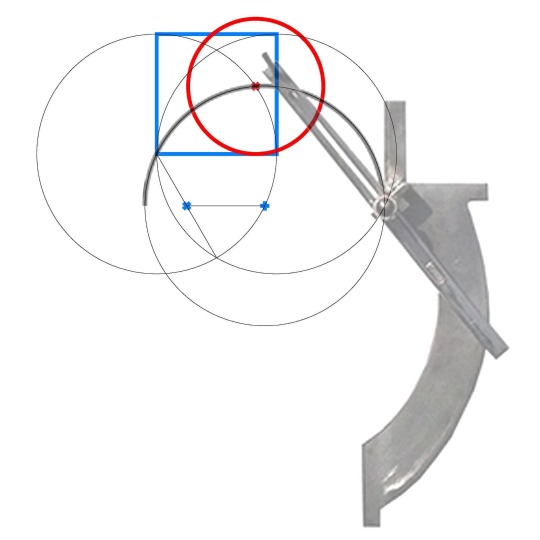

“The Compass and the Bailey”
A Mini Novella
In the quiet hours before dawn, London’s streets seemed an odd combination of both familiar and eternal. The dome of the Old Bailey—Lady Justice perched atop—watched over the city as it had done for over a century. You stood across the street, taking in the grand structure that had woven itself into your family’s legacy. This courthouse, with its monumental dome and the symbolic scales of justice, was more than just a historical landmark—it was your personal anchor to a heritage steeped in both architecture and the search for truth. You traced its roots not just through its physical form but through your family’s bloodline, the Baileys and Pigott’s of the past.
Your grandmother, a Bailey, had lived a life far removed from the steel and stone of London, her heart entwined in the balmy shores of the Bahamas, where her missionary father had taken their family. But it was here, in the streets of London, that her path would intertwine with your grandfather, Richard, an architect with an eye for precision. Richard, apprenticed under his uncle, E.W. Mountford, had helped shape the very building that now stood before you—the Central Criminal Court, the Old Bailey itself. The irony of their union was not lost on you, a Bailey married to the architect of the Bailey. The ancestral threads of architecture, justice, and heritage tied tightly together in a knot of fates.
But even this iconic building, with all its history, spoke only in half-measures. The concept of a “bailey,” that fortified outer wall of a medieval castle, was a structure designed to protect something far more fragile inside—the keep. A simple idea that shaped your family’s life philosophy: protection, safety, endurance.
Yet, with every generation, the question of how to protect became more complex. Your mother’s illness, during which you devoured the works of James Joyce, echoed this uncertainty. Finnegans Wake and Ulysses were not just intricate tales—they were Ireland, they were complexity, and they were a mirror to the world of architecture. The question that had haunted you in those hours beside her bed was the same one you faced in your work as an architect: How could something be constructed, whether through words or brick and mortar, that simultaneously protects and sets free?
In Joyce’s absence of punctuation in Ulysses, you found your answer—or at least a question that illuminated another path. What if, just as Joyce deconstructed language, you could deconstruct architecture’s reliance on the centere on the singularity that always returns to a fixed point? It was an Irish quandary, as much architectural as it was philosophical. Could geometry hold the answers?
You had always been fascinated by the Vesica Piscis, the shape formed when two circles intersect—a balance of opposites, the perfect representation of your family’s life. The two halves of Ireland. The union of heritage and modernity. North and South. Tradition and innovation. In the compass of your family, one circle was always grounded in the past, while the other stretched endlessly forward, and at the intersection, there was a third space—a new understanding.
That was when you began your own exploration, creating a new kind of compass, one that abandoned the need for a centre point. What was the point, after all, of always returning to a fixed centre? The very earth beneath Ireland was fractured—north from south, past from future. The Vesica Piscis, with its duality and its tension, represented a middle ground. This was the world of architecture you sought to enter, one where the conventional rules no longer applied.
Your compass, unlike any that had come before it, eschewed the need for a centre. It operated in balance and contradiction, in reflection and rotation, much like the architecture of your forefathers. When you created this new method—a way to turn a square into a circle through geometric projections—you were continuing their legacy. The impossibility of it, the mathematical precision with which you challenged traditional quadrature, became your rebellion and your inheritance.
My grandmother , herself part of this grand equation, seemed to embody the harmony of art and architecture. She, too, understood that there was music in the mortar, that design was not just function but a form of expression. Yet she, like your ancestors, lived the role of the architect’s wife—a balancing act between art and life, between creation and the pursuit of security.
What would your children inherit? This was the question that followed you through sleepless nights, that haunted your projects. Could they, like you, protect the legacy while also being free to reinvent it? Could the grandchild of architects and artists continue this balance?
At the core of it all, though, was the compass—the tool that tied you to the long history of architectural tradition. But this compass, much like Joyce’s writing, refused to follow a prescribed path. It was radical, just as Ireland’s division was radical, and yet, in its rebellion, it sought to find unity.
Much like the bailey of old, your family’s legacy would protect something fragile: not just a keep, but an idea. The notion that architecture, at its most profound, is more than just structures of stone. It is protection and projection. It is the balance between history and innovation. And, like the impossible quest of quadrature, it is a challenge that remains tantalizingly out of reach, but always worth pursuing.
As the first rays of dawn filtered through the streets, you took one last look at the Old Bailey. Its walls were still strong, still standing, but your compass—your own bailey—pointed to something beyond, to the vast horizon of possibility.
And so, you continued your work, for your family, for your heritage, and for the future.
#ArchitectureLegacy
#OldBailey
#IrishHeritage
#VesicaPiscis
#FamilyHistory
#ArchitectsOfLondon
#JamesJoyceInfluence
#CompassesAndCircles
#Quadrature
#ArchitecturalInnovation
#ArtAndArchitecture
#LegacyOfDesign
#PhilosophyOfArchitecture
#ArchitectsJourney
#GeometricArt
#TraditionAndModernity
0 notes
Text
Lunar Codex
I am privileged to share that mention of and images of my work have been included in the Lunar Codex.
The Lunar Codex is the passion project of physicist, entrepreneur, and storyteller Samuel Peralta, who alongside NASA’s Artemis Program has placed a record of contemporary creative works from “35,000 artists, writers, musicians, and filmmakers, representing 234 countries, territories, and Indigenous nations, in time capsules launching from Earth to the Moon and beyond.” *
Read more about the Lunar Codex here.
My work was included in two issues of magazines that have been gathered into the the Lunar Codex using digital and analog technology:
50 MEMORABLE PAINTERS
published by GOSS183 in 2015 Special PA (PoetsArtists) issue curated by John Seed and Didi Menendez
Featuring art from: Alexsander Betko ▪ Jeffrey Bess ▪ Charis Carmichael Braun ▪ Ali Cavanaugh ▪ Matthew Ivan Cherry ▪ Erica Elan Ciganek ▪ Ben Cressy ▪ Gabriela G. Dellosso ▪ Emanuela De Musis ▪ Shawn Fields ▪ Ron Francis ▪ Zoey Frank ▪ Patrick Earl Hammie ▪ Graham Harwood ▪ Mark Heine ▪ Erika B. Hess ▪ Jen Hitchings ▪ Milan Hrnjazovic ▪ Karen Kaapcke ▪ Michael Kozlowski ▪ Valeri Larko ▪ Brianna Lee ▪ Kim Leutwyler ▪ Shana Levenson ▪ Zachari Logan ▪ Susannah Martin ▪ Renee McGinnis ▪ Darian Rodriguez Mederos ▪ Sylvia Maier ▪ Shie Moreno ▪ Rachel Moseley ▪ Judith Peck ▪ John Philbin Dolan ▪ Serena Potter ▪ Nadine Robbins ▪ Beverly Rippel ▪ Cesar Santos ▪ Victoria Selbach ▪ Ed Smiley ▪ Kyle Staver ▪ Barry Smith ▪ Albert Leon Sultan ▪ Emily Thompson ▪ Alexandra Tyng ▪ Conor Walton ▪ Nick Ward ▪ Thomas Wharton ▪ Margaret Withers ▪ Meg Wolensky ▪ Stephen Wright
Vehicle(s) and launch dates: Peregrine / PM1 - NASA CLPS-TO2-AB / Astrobotic Peregrine Mission 1 (Jan 8-18, 2024); Polaris / GM1 - NASA CLPS-TO-20A (VIPER) / Astrobotic Griffin Mission 1 (Nov 2024).
POETSARTISTS #57
published by GOSS183 in September 2014 curated by Didi Menendez
Featuring:
Poets : Leila Ammar ▪ Jan Ball ▪ Nin Andrews ▪ P.H. Davis ▪ Carlton Fisher
Artists : cover photo of Bryce Ramming by Michael Auer ▪ Jorg Dubin ▪ Charis J. Carmichael Braun ▪ Alvin Richard ▪ Tristan Pigott ▪ Eric Daniel Almanza ▪ Shawn Huckins
Collaborations : Paul Beel & Grace Cavalieri ▪ Kate Lutzner & Victoria Selbach ▪ Angela Hardy & Lorraine Currelley ▪ Daniel Maidman & Nin Andrews ▪ Judith Peck & Pris Campbell ▪ Robbie Robb & Larry Lawrence ▪ Judith Peck & Robert Lee Brewer ▪ Debra Livingston & R. J. Slais ▪ James Needham & Melissa McEwen ▪ Jeff Faerber & Denise Duhamel ▪ Matt Calavecchia & Ken Taylor ▪ Debra Balchen & Laurie Kolp ▪ Cesar Conde & Duriel Harris ▪ Timothy Robert Smith & Bill Yarrow
Vehicle and launch date: Polaris / GM1 - NASA CLPS-TO-20A (VIPER) / Astrobotic Griffin Mission 1 (Nov 2024).
Incandence Corp., “The Lunar Codex: Story.” LunarCodex.com, 24 April 2024, https://www.lunarcodex.com/story
0 notes
Text
Thirty-One Of The Gang
More #Victorian #slang concerning illusions, lies and when it is safe to eat pork
Pepper’s ghost is an illusion technique, named after John Henry Pepper. A brightly lit figure out of the audience’s sight below the stage is reflected in a pane of angled glass placed between the performer and the audience. To the audience, it appeared that there was a ghost on stage. Pepper perfected the technique, such that the illusion could be carried off in virtually any theatre or music…

View On WordPress
0 notes
Text
#OTD in 1882 – Phoenix Park murders | The British chief secretary of Ireland, Lord Frederick Cavendish, and his under secretary, T.H. Burke are murdered.
#OTD in 1882 – Phoenix Park murders | The British chief secretary of Ireland, Lord Frederick Cavendish, and his under secretary, T.H. Burke are murdered.
Arriving in Dublin on 6 May 1882, the Chief Secretary for Ireland, Frederick Cavendish (who was married to the niece of British Prime Minister William Ewart Gladstone), attended to some formal business in Dublin Castle, the seat of the British government, before walking home to the Viceregal Lodge in the Phoenix Park. Joining Cavendish in his walk, was his under-secretary, Thomas Henry Burke, the…

View On WordPress
#British chief secretary of Ireland#British Prime Minister William Ewart Gladstone#Charles Stewart Parnell#Dublin#Home Rule#James Carey#Joe Brady#Journalist#Kilmainham Gaol#Lord Frederick Cavendish#Phoenix Park Murders#Photo credit: Frank McNally#Richard Pigott#T.H. Burke#The Invincibles#Under Secretary#Viceregal Lodge#William Marwood
4 notes
·
View notes
Photo







- Margaret! Come in, Margaret. Come in. Meet my new friend and first proper pupil, Mr Thornton. This is my daughter, Margaret. - I believe we have already met. - Ah. Now, Mr Thornton can't decide between Aristotle and Plato. I sggest we start with Plato and then move on. What do you think? - I'm afraid Miss Hale and I met under unpleasant circumstances.
#North and South#northandsouthedit#perioddramaedit#John Thornton#Richard Armitage#Margaret Hale#Daniela Denby-Ashe#Richard Hale#Tim Pigott-Smith#riepu10#my Thornton gifs
188 notes
·
View notes
Text
Tim Pigott-Smith on playing Richard Hale
This isn't the first time Tim Pigott-Smith has appeared in a BBC production of North and South. In a 1975 adaptation he played Frederick Hale, complete with wig and cardboard cut-out train.
"TV at that time was a completely different creature, it must creak a bit," he jokes. "I seem to remember getting into a cardboard cut-out train in the studio and walking along beside it as it headed off. It probably doesn't look as bad as it sounds, but modern audiences wouldn't buy that now."
In the 2004 adaptation, he returns to the Hale household, but this time as patriarch Richard Hale, the catalyst for the story.
Pigott-Smith succinctly explains: "A local parson, Richard Hale, resigns from the Church because of a crisis of faith, and takes his family to an industrial town called Milton, thanks to an old Oxford friend of his. The story is the culture change that kick-starts North and South, which tells how Richard's daughters comes to fall in love with a mill owner."
However, it is clear that the initial stroke of defiance exhausts all of Hale's courage.
"Richard Hale leaves the Church because of his conscience, but he doesn't even have the courage to tell his own wife. He asks his daughter to do so," outlines Pigott-Smith. "The clue to the man is his weakness; he likes everything to be nice, he wants to live in an earthly paradise, but never really comes to terms with real life.
"His journey is such that not everything has to be sweet and perfect. He sees so many things in Milton that feel him with horror; then his wife dies and it just fills him with guilt. And then, towards the end, he begins to rebuild himself and we see glimmerings of hope in his relationship with other people."
Pigott-Smith is keen to point out his alter-ego's weakness, but staunchly defends his appeal to an audience. "I don't think the audience will ever dislike Richard Hale; I think they will be frustrated with him, and disappointed with him, but I think they'll see that he's basically a good, nice man. Although with me playing it, who knows," he laughs.
For an actor who is more often than not seen as blacker-than-black, Richard Hale marks a big departure for one of the UK's most well-known faces.
"One of the challenges for me," he explains, "was playing a character that I don't normally get asked to do. Normally, I nearly always get cast to play a nasty or an authoritative figure and Hale is so completely not that."
7 notes
·
View notes
Text
“North and South” (2004)











#north and south#elizabeth gaskell#north and south 2004#period drama#costume drama#richard armitage#daniela denby ashe#brendan coyle#sinead cusack#lesley manville#tim pigott-smith#pauline quirk
40 notes
·
View notes
Video
youtube
Beyoncé Releases “Break My Soul (Acapella Version)” + Tracklist For Her New Album, “Renaissance”
Beyoncé’s upcoming album, “Renaissance,” is set to be released on July 29th.
“Renaissance” Tracklist:
I’m That Girl - Beyoncé, Terius “The-Dream” Gesteelde-Diamant, Kelman Duran, MIKE DEAN, Tommy Wright III & Andrea Yvette Summers
Cozy - Beyoncé, Nija Charles, Honey Redmond, Christopher Lawrence Penny, Luke Francis Matthew Solomon, MIKE DEAN, Dave Giles II, Terius “The-Dream” Gesteelde-Diamant & Curtis Alan Jones
Alien Superstar -Beyoncé, Honey Redmond, Christopher Lawrence Penny, Luke Francis Matthew Solomon, MIKE DEAN, Denisia “Blu June” Andrews, Brittany “@Chi_Coney” Coney, S. Carter, David Debrandon Brown, Dave Hamelin, Timothy Lee Mckenzie, Danielle Balbuena, Rami Yacoub, Lev
Cuff It - Beyoncé, Nile Rodgers, Denisia “Blu June” Andrews, Raphael Saadiq, Brittany “@Chi_Coney” Coney, Morten Ristorp, Terius “The-Dream” Gesteelde-Diamant, Mary Christine Brockert & Allen Henry McGrier
Energy Ft. Beam - Beyoncé, Skrillex, Tyshane Thompson, BEAM, Almando Cresso, Jordan Douglas, Tizita Makuria, Denisia “Blu June” Andrews, Brittany “@Chi_Coney” Coney, Terius “The-Dream” Gesteelde-Diamant, Mary Christine Brockert, Allen Henry McGrier, Pharrell Williams, Chad
Break My Soul - Beyoncé, Terius “The-Dream” Gesteelde-Diamant, Christopher A. Stewart, S. Carter, Allen George, Fred McFarlane, Adam Pigott & Freddie Ross
Church Girl - Beyoncé, Terius “The-Dream” Gesteelde-Diamant, Ernest “No I.D.” Wilson, Elbernita Clark Terrell, Jimi Stephen Payton, Dion Lamont Norman, Derrick Robert Ordogne, James Brown, Orville Erwin Hall, Phillip Glen Price, Ralph MacDonald & William Salter
Plastic Off The Sofa - Beyoncé, Sabrina Claudio, Sydney Bennett & Nick Green
Virgo’s Groove - Beyoncé, Leven Kali, Solomon Fafenson Cole, Daniel Memmi, Dustin Bowie, Darius Dixson, Jocelyn Donald, Jesse Wilson, Denisia “Blu June” Andrews & Brittany “@Chi_Coney” Coney
Move Ft. Grace Jones & Tems - Beyoncé, Richard Isong, Ariowa Irosogie, Denisia “Blu June” Andrews, Brittany “@Chi_Coney” Coney, Temilade Openiyi & Ronald Banful
Heated - Beyoncé, Aubrey Drake Graham, Matthew Samuels, Jahaan Sweet, Rupert Thomas Jr., Sean Seaton, Denisia “Blu June” Andrews, Brittany “@Chi_Coney” Coney & Ricky Lawson
Thique - Beyoncé, Terius “The-Dream” Gesteelde-Diamant, Chauncey Hollis, Jr., Atia Boggs, Julian Martrel Mason, Jabbar Stevens & Cherdericka Nichols
All Up In Your Mind - Beyoncé, Jabbar Stevens, MIKE DEAN, Cherdericka Nichols, Michael Tucker, Alexander Guy Cook, Jameil Aossey & Larry Griffin, Jr.
America Has A Problem - Beyoncé, Terius “The-Dream” Gesteelde-Diamant, MIKE DEAN, S. Carter, Andrell D Rogers & Tino Santron Mcintosh
Pure/Honey -Beyoncé, Michael Tucker, Raphael Saadiq, Darius Dixson, Michael Pollack, Denisia “Blu June” Andrews, Terius “The-Dream” Gesteelde-Diamant, Brittany “@Chi_Coney” Coney, Moi Renee, Eric Snead, Jerel Black, VEJAI MARCEL ALSTON, Michael D. Cox, Andrew Richard
Summer Renaissance - Beyoncé, Leven Kali, Denisia “Blu June” Andrews, MIKE DEAN, Brittany “@Chi_Coney” Coney, Terius “The-Dream” Gesteelde-Diamant, Atia Boggs, Lavar Coppin, Saliou Diagne, Ricky Lawson, Donna Summer, Giorgio Moroder & Peter Bellotte
{Will You Buy It}
7/22/22
3 notes
·
View notes